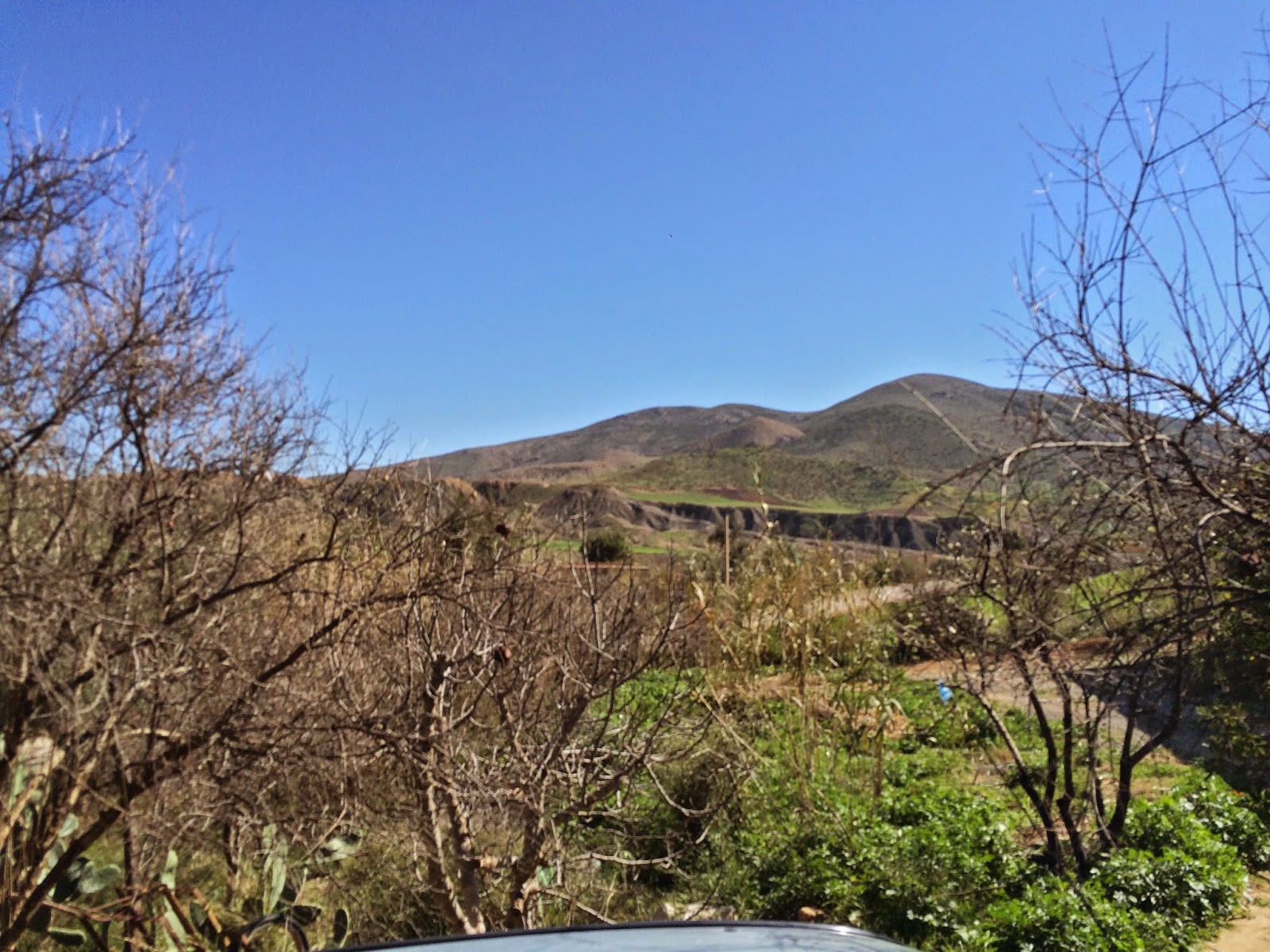Now it is time to visit the cousins on the farm. They have prepared us a feast, a whole goat, roasted. We take the turn off the highway up a winding road through grasslands. At the bend young father and his little girl wait for us in front of their home, all smiles. Hugs, greetings, and inside the courtyard the whole family comes to greet us. The cousin, the matriarch, Fatmah’s generation, her husband, the patriarch, their son, daughter-in-law, daughter, who speaks English well, (if we speak slowly) they are proud to say, and the little girls. The courtyard walls are high and tiled, like the floor. And the shiny water tank is in the corner. Back and forth they go, filling containers as needed. A mat is on the floor, with pillows against the wall. The sun shines warm and bright on this early march day. Do I want to eat here? But in the cool shade inside, in the parlour where the low sofa cushions line the wall, the low tables are already set with china and glasses, plates of salads. So no, of course we will sit here.
Faces turn to me, smiling in the kitchen. There it is, the goat, roasted in the nearby town, since the local man he is too old to ask to sit and turn the spit for three hours. The little girl pokes her finger in the meat and is told to move on. Cats meow outside, we talk some, and the little girl returns, and is finally given a meaty bone. She is pleased. I may be mistaken. She may be the one in charge. Her aunt teaches her English. “ABCDEFG. . .” she sings. We join her.
The feast is a joyful reunion, a catching up and learning, interrupted only by the cat and her kitten coming in on the path of sunlight through the front door. Shushed constantly away, or lured away with scraps thrown outside.
After the feast we walk through the 50 acres of fields planted with fava beans, the bee-keeping area, the olive trees. Chickens cluck, the goats bleat somewhere behind the hand made fence in the other side. We’re shown the irrigation system he’s set up, the vegetable garden, green peas, already knee-high lettuce, parsley, onions, the 50-ft deep well he dug himself, lined with bricks. We traipse on deep green grasses, covering the ground. No, not grass -- that is wheat growing, which is what they use for bread.
We come to the chalky green river, high and running after a winter of snow and rains. The little girl shows me the wild flowers she’s picked, and we search for more.
Pictures are taken by the river, against the backdrop of the mountains. In a distant farm’s front yard someone is leading a cow while the children play. A brother’s farm, I think. Back to the house, we come upon a small black sploted tethered, a small mild black and white bull. He’s used for plowing. Does he have a name? No, none of the animals have names. “Let’s call him John Deere.” Around the bend a donkey is tethered, also used for plowing, or riding. “Brooklyn,” I said. “His name is Brooklyn. Hi Brooklyn!” We see a dog here and there. The cousin comes out and shows us her homemade oven, mud and straw, where our delicious bread was baked, where the water is warmed.
Another family member joins us, a young man who teaches French in the nearby school. His wife and two young daughters live in Tiaret. Does he help on the farm? No, he smiles. We talk about the French word for star, -- star -- what must be gloriously visible there at night. Yes, says Djelloul. Jessica, she loves to stay here, and the girls. They love the stars.
We ride home, Djelloul calls Jessica and we all share the news of the day. No they only got a few inches of snow. He told her not in a million years would she guess what we were having for supper.
Pizza.

































This comment has been removed by the author.
ReplyDeleteWonderful writing and photos! Thanks Diane.
ReplyDeleteThis comment has been removed by the author.
ReplyDelete